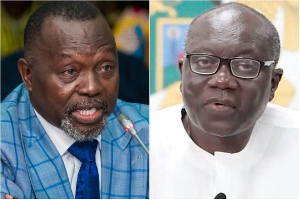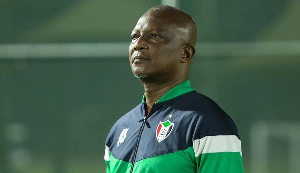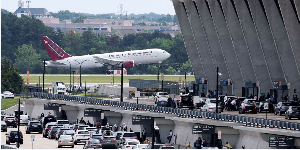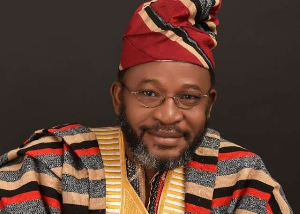By Kwame Okoampa-Ahoofe, Jr., Ph.D.
Ghana’s troglodytic position on homosexuality has been making waves in the international community because until very recently, the country was envisaged as the beacon and foremost leader of postcolonial Africa. At a press conference recently, Attorney-General Martin Amidu quite intelligently observed that while the law proscribing same-sex relationships dated from the colonial era, the government of Ghana was increasingly being made aware of the fact that modernity dictated a change in national attitude towards the treatment of gays/lesbians/bisexuals and transgender humans in Ghanaian society (Ghanaweb.com 8/30/11).
The preceding, of course, does not necessarily mean that the abhorrence of homosexuality on the part of a presumed Ghanaian majority has undergone any dramatic or sea change. It simply means that the citizenry at large is increasingly being made aware of the imperative need for tolerance towards the practice of homosexuality as a minimum cultural threshold in a democratic society.
Even so, Mr. Amidu, who also doubles as Ghana’s Minister of Justice, insisted that “the criminal law against same-sex relationships will not be revoked, since the majority of Ghanaians do not approve of it.”
On the latter score, as already noted, Mr. Amidu is not exactly accurate in his observation. At best, the Minister ought to have emphasized the far more accurate phrasal observation or phraseology of “a presumed majority” of Ghanaians frowning upon the practice.
It is also rather paradoxical, albeit superficially diplomatic, for the Justice Minister to maintain, on the one hand, that his ministry and the government have no specific policy on homosexuality, while at the same time insisting that the British colonial law proscribing homosexual practice will not be scrapped.
To say the least, such pusillanimity is symptomatic of a government seriously lacking in the courage of its conviction, that is, if it has any conviction at all. And properly speaking, it is abjectly hypocritical.
Needless to say, what the Justice Minister ought to be calling for is the tabling of homosexuality as the subject of a referendum for Election 2012. In other words, for politicians and other authoritative figures like Mr. Amidu to be able to meaningfully and more constructively speak to the issue of our national temperament or attitude towards homosexual practice, there ought to be established an objective criterion by which to gauge the national pulse on this sticky question. And, of course, under our particular circumstances, the best way to do this is to put the matter before the nation in a referendum. And, needless to say, based on the direct outcome of such a referendum, a proper decision could then be taken on whether to amend the colonial-era law proscribing the practice of homosexuality or to maintain the law as it currently is.
The personal preferences of even rabidly anti-gay legal experts like Ghana Law School’s Mr. Moses Foh-Amoaning ought not to concern us here. What ought to happen is for the Ministry of Justice to formulate a benchmark policy on homosexuality, even as the latter subject increasingly assumes center-stage of our national cultural life, and even Ministers of State and cabinet appointees, who ought to know better, unwisely attempt to wish away both the presence of homosexuals and the practice of homosexuality in Ghanaian society by calling for an open season of unprovoked violent attacks against homosexuals, as was recently assayed by the Western Regional Minister.
Of course, while religious groups and their leaders have every right to preach and espouse the tenets of their disparate faiths, nonetheless, it ought to be unmistakably impressed upon the leaders and members of these institutions that religiosity is pretty much a private affair. Consequently, for any members of these religious establishments to seek to make political capital out of a purely individual and private affair is clearly ultra vires. Ghana and Ghanaians have too many problems to worry about, including the high spate of fornication and adultery among both ministers of state and of the gospel to worry ourselves about who went to bed with a member of the same sex or gender last night.
*Kwame Okoampa-Ahoofe, Jr., Ph.D., is Associate Professor of English, Journalism and Creative Writing at Nassau Community College of the State University of New York, Garden City. He is Director of The Sintim-Aboagye Center for Politics and Culture and author of 22 books, including “Dr. J. B. Danquah: Architect of Modern Ghana” (iUniverse.com, 2005). E-mail: okoampaahoofe@optimum.net.
###
Opinions of Thursday, 8 September 2011
Columnist: Okoampa-Ahoofe, Kwame













